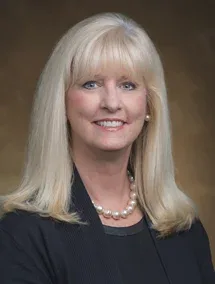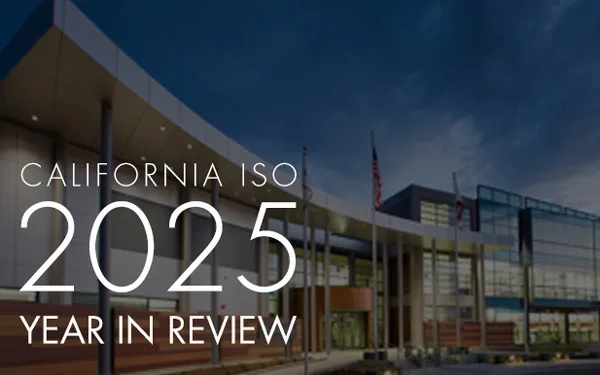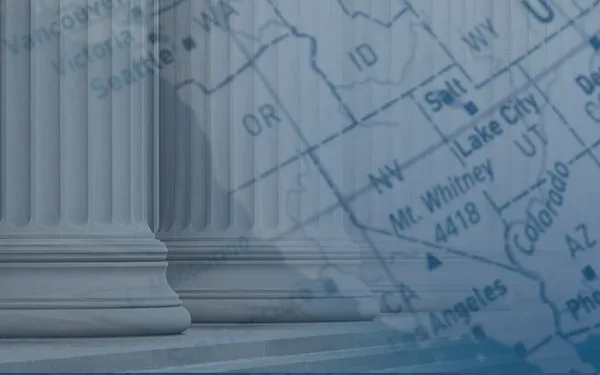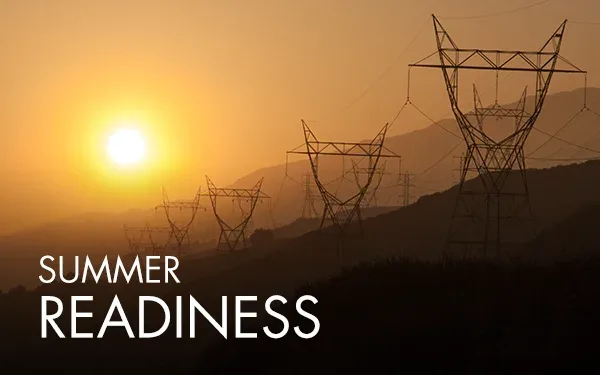Women in Leadership speaker series is a hit

When we began to think about scheduling the first monthly California ISO “Women in Leadership” speaker series” for our employees in June, I honestly did not know what to expect.
The speaker series grew out of the ISO’s popular Women in Leadership training program, which has been a big success. I heard so many compelling stories from the women who have participated in that training that it only seemed logical that the broader ISO workforce would find them interesting and often inspirational, too.
Still, there was no way to tell how popular the speaker series would be until we took the plunge and kicked things off. The ISO is a busy place and people’s days are pretty packed, but I think we all enjoy hearing other people’s stories about their journey and their lives. Given the size of the organization, I also knew that people would be familiar with the speakers we invited or at least have crossed paths with them. It was a safe bet, they would be curious to learn more because that is the kind of employees the ISO attracts.
Relying on remote WebEx sessions during a pandemic may not be the ideal way to launch a new speaker series, but interest in the program has been strong from day one. The first speaker, Kelsey Ajax, the ISO’s only female shift manager for Real-Time Operations, drew 200 participants who learned about the series through a low-key email.
Sessions with other speakers, including April Gordon, the ISO’s director of Financial Planning and Procurement; and Amber Motley, a meteorologist who is senior manager of the ISO’s Short-Term Forecasting team, have also drawn well.
Employees in the meeting loved hearing how April manages by empowering her team. Amber told a fascinating story about how she developed her love for meteorology when she was a small girl and her father, a cross-country truck driver, would take her up to an area hillside to scout out approaching weather. I am excited to hear Jodi Ziemathis, the ISO’s vice president of Human Resources, talk about her journey when she is the speaker for October. We are also working now on the program for November and December.
What is also gratifying about the 45-minute Q&A sessions is the fact that the audience is just about evenly split between men and women. In fact, four months into the program, the speaker series has been so well received by so many people at the ISO that we are now planning to expand it next year to focus on other members of our diverse workforce.
Because the series is part of our diversity, equity and inclusion initiative at the ISO, we want to make sure other groups of employees have an opportunity to tell their stories and learn from each other. We do have an extremely diverse workforce at the ISO and there is no question that people respond to hearing others talk about their careers, their challenges, how they got to where they are today, barriers they’ve overcome. These stories have universal appeal.
The series for next year is still being formulated, but plans now call for speakers who are African-American, Latino/Hispanic or some of the many foreign-born employees who came to the organization from a diverse set of experiences and backgrounds.
Our employees come from China, from Middle Eastern countries, from India, from Russia, from literally all over the world. We have LGBTQ+ men and women and people from so many backgrounds and experiences. My experience tells me it makes for a much more cohesive and stronger organization when we get to learn about people’s journeys, experiences and perspectives about the work and about life.
And we don’t shy away from pointed questions. I send each speaker a list of questions ahead of time so she can think about the topics and not be surprised. We always want to hear about her career path, good advice received along the way, personal management style, philosophy and more.
But I also ask if they have ever experienced gender bias in the workplace, including during their time at the ISO. That line of questioning may feel risky in some work environments, but we have a good foundation of trust at the ISO. Our speakers are not reluctant to share their stories because they know that information is not going to be used against them in any way. We are all striving for an open, safe, accessible work place, and those values are reinforced by that type of open dialogue.
That trusts exists in large part because of our president and CEO. Since Elliot Mainzer arrived at the ISO last year, he made it clear he valued a work culture that respected and was open to those kinds of candid exchanges. I know he wants people to talk about the good and the not so good. If there are areas that need attention, the only way we are going to change things is to first be able to talk about them. I am proud to work for an organization with those kinds of values.
For the Women in Leadership speaker series, we really want women with leadership skills and aspirations to feel comfortable and confident pursuing leadership positions when they are available.
In discussing some of the issues women face in their careers, I have mentioned research that shows when a leadership position is open in most organizations, women often look at the job description and decide not to apply because they may think they have only 60 percent of the qualifications. They treat the idea of applying as if they are somehow not quite ready for the role.
But women grow into those other responsibilities the same way men do, so it’s really important for them to go after those positions if that is where they want to be. It’s good for them and it’s good for the organization. When you have gender parity in these positions, you really do have a stronger team and that is what we all are striving for at the ISO.


